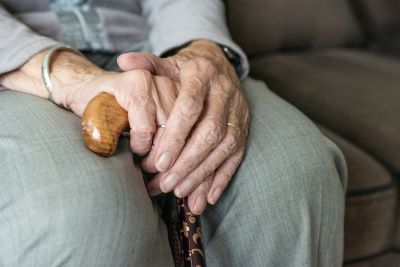How to Investigate Nursing Home Abuse and Neglect
 Our elderly loved ones deserve to live in a safe, comfortable, healthful, friendly environment. Sadly, nursing home abuse and neglect are common occurrences today. Rates of abuse are high in nursing homes, with two out of three staff reporting that they have committed abuse in the past year, as stated by the World Health Organization (WHO).
Our elderly loved ones deserve to live in a safe, comfortable, healthful, friendly environment. Sadly, nursing home abuse and neglect are common occurrences today. Rates of abuse are high in nursing homes, with two out of three staff reporting that they have committed abuse in the past year, as stated by the World Health Organization (WHO).
Researchers found the following estimated percentages for different types of institutional abuse reported by older adults in a recent study:
- Psychological abuse: 4%
- Physical abuse: 1%
- Sexual abuse 9%
- Neglect 6%
- Financial abuse 8%
What Are the Common Signs of Nursing Home Abuse?
In investigating nursing home abuse, the first step is to determine whether abuse has occurred or is occurring. Neglect is a form of abuse. Common signs of nursing home abuse and neglect include:
- Bruises, sprains, broken bones, or other unexplained injuries
- Instances of emergency medical treatment
- Unsanitary conditions in the resident’s room or in the facility
- Poor hygiene and sanitation
- Unexplained physical or emotional withdrawal on the part of the resident
- Reluctance of the resident to speak in the presence of staff
- Use of physical restraints or unreasonable seclusion
- Dehydration and malnutrition
- Weight loss
- Untreated bedsores
- Preventable accidents
- Missing personal belongings, cash, or checks
- Insomnia
- Changes in personality or behavior
How Does Abuse Differ from Neglect in a Nursing Home Setting?
Nursing home neglect is a failure to perform the caretaking duties of nursing homes and their staff. It is a lack of action. Passive neglect is unintentional and typically results from overwork, undertraining, or miscommunication. Active neglect involves an intentional disregard for the needs of the resident on the part of the caregiver.
Abuse, on the other hand, is a knowing, intentional act that causes harm or risk to an elderly resident. It can be physical, emotional, sexual, or financial. Abuse and neglect are both harmful to nursing home residents, and neglect is a form of abuse.
What Should You Do If You Suspect Abuse Is Occurring?
When suspicions arise, start investigating as soon as possible.
- If an elderly victim reports an incident of abuse or neglect, start by verifying the victim’s account of what happened. Interview other residents and take photos. Collect the resident’s medical records, recent prescriptions, and injury reports immediately
- If you suspect nursing home abuse is occurring, report it right away. Call the hotline at (800) 652-1999 to report abuse anonymously to Nebraska Adult Protective Services.
- Consult Nursing Home Inspect and other online directories for reported cases of nursing home abuse. For example, you can search the Nursing Home Inspect database for nursing homes in Omaha by selecting the state (Nebraska) and searching under the city name (Omaha). It will pull up a list of nursing home facilities, with the number and severity of deficiencies for each. Severity scores for deficiencies range from A (least serious) to L (most serious). An L severity rating means “Immediate jeopardy to resident health or safety. Deficiency is widespread.”
- If you believe your elderly loved one is in danger, remove him or her from the facility as soon as possible, then report the incident to the proper authorities and file a nursing home abuse claim.
Contact Bottlinger Law L.L.C. at (402) 505-8234 if your elderly loved one has been a victim of nursing home abuse. If financial abuse has occurred, we can assist you in regaining assets. After any type of serious abuse or neglect, we can help you file a claim against the nursing home facility. Our Omaha nursing home abuse lawyers can help collect and preserve evidence and move forward with a nursing abuse lawsuit.
Bottlinger Law
Consultation Form
Our legal team is ready to help. Please fill out the form below to set up a free consultation with the Bottlinger Law team.